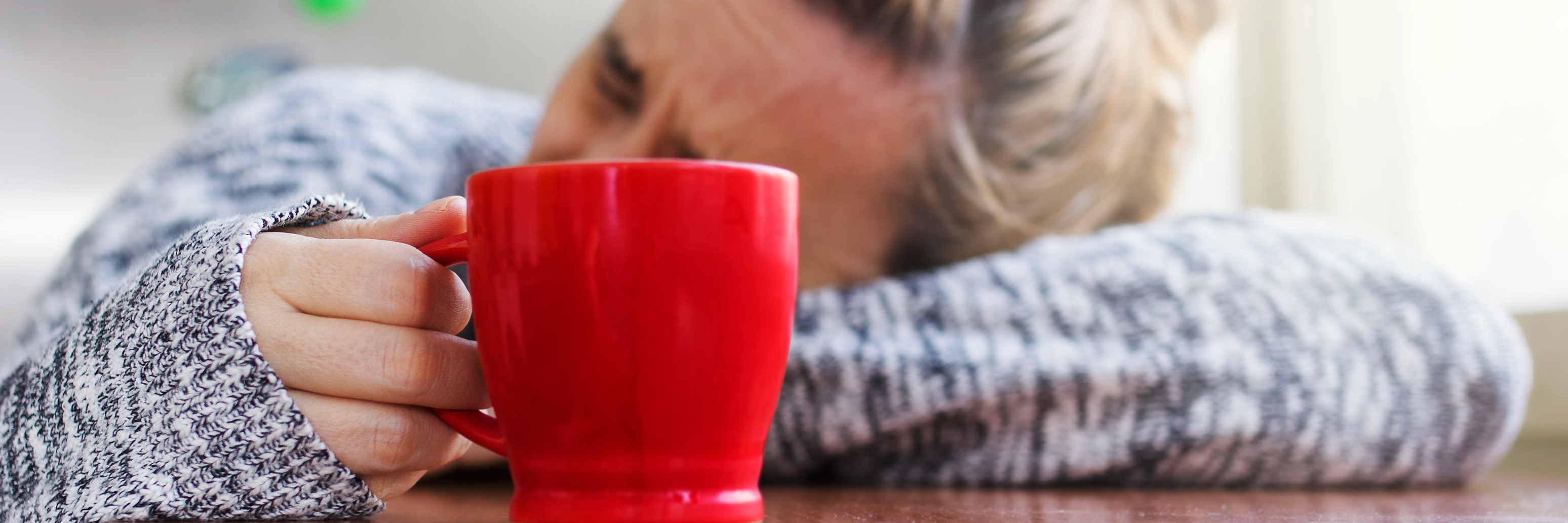There was a time in my not-too-distant past (OK, it was about 17 years ago) when “the morning after the night before” meant a hangover and a trawl through the recesses of my mind in an attempt to recall the events of the previous night. Did I, once again, use the fact that I am a grade 8 flautist to convince the tribute band to let me play the tambourine for them? Did I really stuff sachets of condiments in my boots and re-enact the scene from “Pretty Woman” by asking random men which flavor sauce they wanted? Did my friend unzip the huge inflatable man outside one of the pubs? (As a side note, I have to say that I am ever-grateful for the fact that this all took place before the advent of camera phones and social media.)
Since getting married, having children, moving house and becoming a teacher (i.e. growing up), my escapades have been tamed somewhat. Since getting pneumonia which subsequently caused chronic fatigue syndrome/myalgic encephalomyelitis, my social life has pretty much come to a standstill. Fortunately, I’ve always had a preference for sitting around in my pajamas drinking wine, so this hasn’t come as too much of a blow to me, certainly not as much some other side effects of being ill such as losing my ability to walk or being well enough to work.
There have been a number of stories published in recent years about how chronically ill people should spend their time. Some people (obviously those who have never had or cared for someone with a chronic illness) seem to be under the impression that those who are chronically ill and/or disabled should live out the rest of their lives in a darkened room, shut away from society. Whilst the concept of resting in a darkened room does, occasionally, hold some allure for me (especially on those days where my noise sensitivity is playing up), I cannot stress enough how important social interaction is. Like me, many chronically ill people will have previously worked full time, interacting with hundreds of people each day. To suddenly have this taken from you requires significant adjustment (and you might find yourself talking to the dog more frequently, particularly between the hours of 8 a.m. and 5 p.m.).
However, it’s obviously not as simple as planning a night out with friends, or even inviting people round. As much as I’d like to interact with others, there are days when I feel so ill that I can’t even face answering the phone, much less having to get dressed and actually go out. Yet, an occasional social event can do you the world of good.
For example, a few weeks ago, we spent the weekend with my brother-in-law and his family. The journey to their house took just under two hours, but my husband drove and I was able to rest in the back of the car. We spent the afternoon and evening chatting, eating and having a couple of glasses of wine. As much as I love spending time with my husband and children, it was lovely to talk to other people for a change and I went up to bed feeling happy and looking forward to my niece’s birthday party the next day.
When the morning arrived, I could barely move. I felt as if I had spent the night in the boxing ring and hadn’t come off particularly well. Not wanting to put our hosts out, I struggled through breakfast, my movement limited because of the pain in my joints. I gritted my teeth and managed to get washed and dressed but by the time it came to go to the party, it became clear that the only place I was going was to bed. After a nap (which my doctor has advised me against but sometimes can’t be helped) I lay in bed with my hands over my ears for a few hours, trying to block out the sounds of conversation coming up from downstairs because my ears and head hurt so much.
So why did I feel so awful? It certainly wasn’t the alcohol: I only had a couple of glasses (probably less than I would have done if I’d been at home). Over the next seven days, as my symptoms gradually improved, I identified a number of possible causes for this horrible setback. Perhaps it was the car journey (I’m not used to spending more than 10 minutes each day in a car). Perhaps it’s because I missed my usual bedtime. Perhaps I‘d picked up a bug and my immune system was going wild trying to fight it off. Perhaps it was due to sensory overload caused by speaking to other people.
Regardless of the reason, it took a week for me to return to my “new normal” and, even then, it was at the lower end of the “how I’m feeling” spectrum. So was it all worth it?
Back when I was out drinking all night with my friends, the “morning after the night before” would inevitably contain the statement “I’m never drinking again.” At the time, I always meant it, but you could guarantee that by the following weekend I’d be downing bottles of VK Blue and planning how to infiltrate the band.
As for now, our next night in with friends is already planned. I’m bracing myself for a painful and spirit-dampening week following it, but will be sure to create enough positive memories to make the “morning after” worthwhile.
Now, where can I get my hands on a tambourine?
We want to hear your story. Become a Mighty contributor here.
Thinkstock photo by MarinaZg

